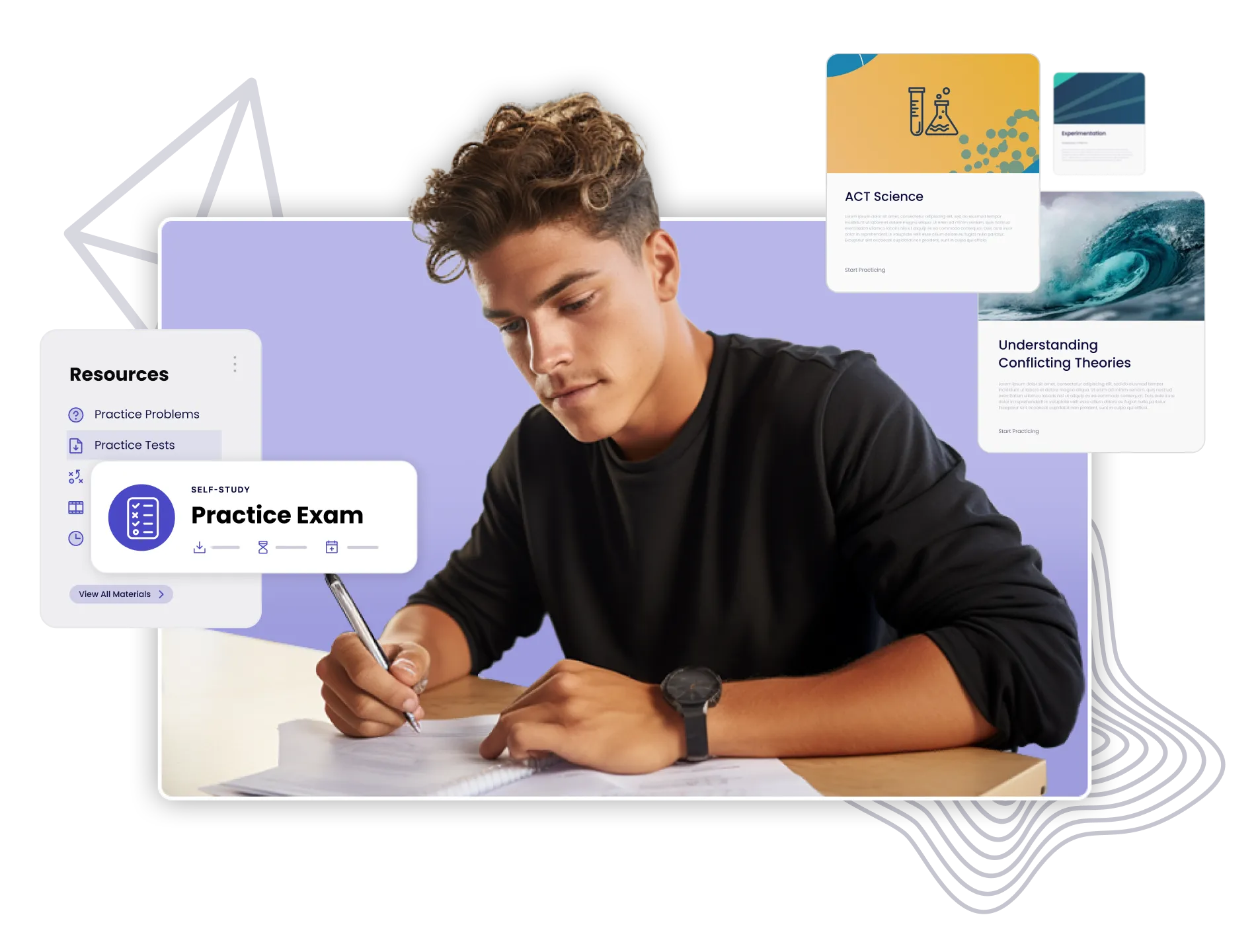4 Common Midterm Study Mistakes

After you’ve settled into the semester and found your bearings, midterm season may seem to suddenly sneak up on you. Halfway through the semester, you’re likely to have your routines in place, and midterms require their own arrangement of time and energy. While these exams can feel like an upheaval, there are common midterm study mistakes you can work to avoid—including prioritizing the wrong concepts, not getting sufficient rest, and not considering the test formats while studying.
Hoping to successfully tackle your midterms this semester? Keep reading to learn four common midterm study mistakes.
Common midterm study mistake #1: failing to get sufficient rest
All-nighters are tempting, but with a solid study plan in place, they can be avoided. While it may feel like the material is fresher in your mind after cramming, all-nighters often inhibit performance on tests because of disrupted sleep and concentration. They can also limit deep understanding of material, especially because it’s likely that you haven’t been studying ahead of time.
To improve study habits, your understanding of material, and your performance on midterms, create a schedule for yourself that acknowledges all areas of your life—other classes and major due dates, extracurricular activities, work, social life, and self-care. You might need to cut back on time for yourself, but do so only temporarily and try planning something to look forward to after exams to keep yourself motivated. You shouldn’t have to totally ignore your social life and self-care in order to do well, and keeping a study schedule can help you do that.
Common midterm study mistake #2: not taking strategic breaks
Not strategizing your breaks is another mistake students often make during study sessions. Students often fall into one—or both—of two categories while studying:
- Taking many breaks, too often and at random times, and getting distracted by media, social media, or friends
- Not giving yourself enough breaks and pushing onwards until you quickly burn out
The first method often results in less productivity, and the second can be draining. To make the most of your time and energy, plan your breaks strategically. This could look different for each individual, but consider using a timer for both the lengths of study sessions and your breaks. Use your break times for an activity like taking a walk or stretching, or do something fun that also has a time limit, like watching a short video or playing a brief game. There are also apps and computer programs that can help you stay focused and avoid distractions.

Common midterm study mistake #3: prioritizing the wrong concepts
Prioritizing the wrong material can hinder your midterm studying. For example, you might be tempted to start studying concepts you already feel very comfortable with or material you learned at the beginning of the semester. While these aren't necessarily bad places to start studying, it’s more useful to prioritize based on the most important to least important concepts to be tested. If you’re not sure what these are, consult a study guide or practice test, meet with your professor during office hours, or check in with a classmate or someone who’s already taken the class.
[RELATED: 5 Reasons Students Should Meet with Professors During Office Hours]
Common midterm study mistake #4: not taking test formats into consideration
The tricky part about midterms is not only the concepts, but also the way you’re tested—which can range from essay answers to multiple choice questions. When practicing your knowledge of concepts, utilize specific test formats as much as possible. If there are practice tests, take advantage of those. If the test is a timed writing piece, try your hand at your own timed writing exercise. Try to mimic the test situation as much as possible.
Regardless of whether your final exam is comprehensive or not, don’t get rid of your notes. Take time to go over concepts you struggled with, because they’re likely to be an important foundation for the rest of the semester.
Any topics you want to know more about? Let us know! The Varsity Tutors Blog editors love hearing your feedback and opinions. Feel free to email us at blog@varsitytutors.com.

